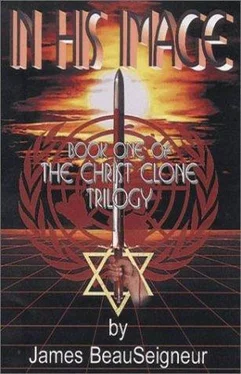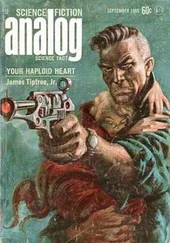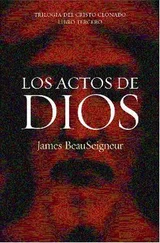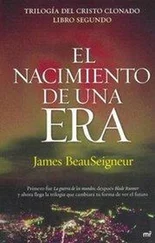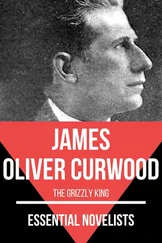"Is that what it is saying?" the rabbi asked before Scott could get to his second point.
"Of course. It's obvious. It could be nothing else."
"And the second reason?"
"Second," said Scott, "is that I have never heard nor read that passage before. If it was from the prophets I would have heard it read in synagogue."
Rabbi ben David leaned forward and handed the still-opened book to Scott. Sitting back again in his chair, he crossed his hands on his stomach and exhaled audibly through his thick gray beard. Scott found the passage quickly; it was well marked. Then he looked at the top of the page: it read 'Isaiah.' Suddenly his eyes filled with rage. "Were the Christians not satisfied to add their writings to the back of our Bible with their so-called 'New' Testament?! Have they now begun inserting their lies into the very text of the Tenach?! Where did you purchase this? We must put a stop to it immediately before others are deceived!"
"As you can see," the rabbi said, flipping to the title page, "this is translated according to Masoretic text and was published by the Jewish Publication Society of America. What I read you is in your Bible, too, Scott. You can go home and look."
"That's impossible. My Bible was given to me by my grandfather. The Christians could not have… "
"Those are the words of the prophet Isaiah, Scott."
Scott's eyes grew wide with bewilderment. "But why have I never heard this before?"
"You have never heard it because that passage is never read in the synagogue. It does not appear in any rabbinic anthology of synagogue readings for the Sabbath. It is always passed over."
"But who can the prophet be talking about?"
The scrutiny of the rabbi's stare turned Scott's question back to him.
"But it can't be. The prophet must be speaking in allegory."
"Perhaps. In rabbinic school, when I was young and believed everything I was told, they covered this passage briefly and they taught us that Isaiah was speaking allegorically of Israel. But if the 'he' the prophecy speaks of is Israel, who then is the 'we'? Clearly there are two parties spoken of. And if the 'he' is Israel, then whose sins – whose iniquities – is it we have borne? Who is it that was healed by our wounds?
"'He was cut off from the land of the living through the sins of My people,'" the rabbi continued, reciting a piece of what he had just read. "Is it not Israel who are God's people? And if Israel is God's people, and 'he' was cut off from the land of the living through our sins, who is the 'he'?" Rabbi ben David frowned and concluded: "So we are back to the same question: to whom does the prophet refer?"
"But what about the part about dying from disease? Jesus was supposed to have been crucified," said Scott.
"In truth," Rabbi ben David answered, "that wording is a very selective translation. You can see right here," he said, pointing to the editor's note at the bottom of the page from which he had just read, "the meaning of the original Hebrew is uncertain. 'Disease' was just a guess. But even with that, who can miss what the prophet is saying?"
Scott did not answer.
The rabbi sighed. "So there is the reason for my distraction," he said, "and the reason I find Joel's dream, or at least the timing of it, so curious. You see, it was because of a dream that I recently read that portion of Isaiah. It was not so colorful a dream as the one Joel described. I'm not even sure I was asleep. I just kept hearing a voice calling my name and telling me to read the fifty-third chapter of Isaiah. I was as astounded as you when I read it. I could not understand how I could have so long ignored what you have just said is so obvious; allegory simply cannot explain the striking similarity. If ever a prophecy were exactly fulfilled, then this… " The rabbi stopped himself from saying more. "Well," he continued, "so now I find myself in a dilemma. As you have said, it is obvious of whom the prophet seems to be speaking, and yet, I cannot allow myself to admit it, but," he said, and then paused, "neither can I bring myself to deny it."
Thursday, August 1,2019 – New York
The Security Council was called to order to assess the progress toward reaching a compromise on a new Secretary-General. Although there was still a long way to go before a decision, substantial movement had occurred. The first major change was the withdrawal of the candidacy of the ambassador from Saudi Arabia. It quickly became clear that certain other regional representatives, particularly India, simply would not accept an Islamic Secretary-General and since the selection had to be unanimous, the Saudi ambassador had bowed out. In doing so, he made it clear that whoever was ultimately chosen would have to pay a price for the Islamic region's spirit of compromise and cooperation. The representatives of East and West Africa who had supported the Saudi were then approached by the American and the Japanese ambassadors for their support, but both were reluctant to support either.
After some late-night deliberations between the supporters of Japanese Ambassador Tanaka and the Africans, French Ambassador Albert Moore had asked the representative of West Africa whom he could support. An hour later, after private discussions between the East and West Africans, they had come back with the answer that they could support the representative of Northern Asia, Ambassador Yuri Kruszkegin. Moore relayed the information and the next morning Tanaka withdrew and threw his support to Kruszkegin.
In the meantime, however, the Saudi, who represented the Middle East, had agreed to support Ambassador Clark of the United States. When the Security Council adjourned, the vote was five for Kruszkegin, four for the American Clark, and as before, China abstained. The issue was tabled for seven more days.
Sunday, August 11,2019 – Jerusalem
The black stretch limousine of the Italian ambassador to Israel, Paulo D'Agostino, pulled past the security barriers and stopped outside the front entrance of the Israeli Knesset. Accompanying D'Agostino were Christopher Goodman, Robert Milner, and Milner's guest, Alice Bernley. Close behind the limo, security personnel from the Italian embassy followed in an armored truck carrying a large wooden crate which had recently been delivered to the embassy from Alsace-Lorraine, France.
Inside the Knesset building, in the office of the prime minister, Israel's High Priest Chaim Levin and two Levite attendants had just arrived and were exchanging pleasantries with the prime minister and the minister of foreign affairs while they awaited the arrival of their guests.
"Thank you very much for coming, Rabbi," the prime minister told the High Priest.
"I am always willing to be of service to Israel," the New York-born High Priest answered. "But tell me, have they still not said why it was so important that I attend this meeting, and why of all days, it had to be today?"
"No, Rabbi. The purpose of the meeting is to allow the new Italian ambassador to the United Nations an opportunity to present arguments for renegotiating our treaty with the U.N.: nothing that should concern you, and, I might add, nothing that really concerns me. The old treaty has lapsed and, while I admit it has a few flaws, I am reluctant to agree to any new negotiations. I would have refused this meeting altogether but for the fact that it was requested by former U.N. Assistant Secretary-General Robert Milner, a man of some influence with ties to American bankers. As for why he asked that you be invited and why it had to be on this day, I do not know. He said only that they will be bringing something with them that you will want to see."
The meeting was soon underway and Christopher began to address those assembled. Alice Bernley was the only woman in the room. It was a little awkward explaining her attendance in an official meeting of state, but there was no way that Bernley would allow this moment to pass without her. Christopher was careful to be brief and to the point. He well knew that all of the arguments he would make about the treaty had been made before, but that was not the real reason for this meeting anyway. Still, it was necessary that Christopher offer a clear explanation of the treaty's purpose and the reasons the U.N. believed that a new treaty – not just an extension of the old one – was required. The duration of the proposed treaty would be seven years, and would allow the parties, upon their mutual agreement, to extend its effect for three additional periods of seven years each. There was nothing particularly remarkable about the treaty, just typical matters of state. The only thing of even passing interest was a provision for a mutual agreement of non-aggression. Even this was included primarily as a diplomatic formality. Israel certainly had no intention of attacking anyone, and after seventy-one years as a nation under constant threat of war, while it still had problems with terrorism, it had established itself militarily as a nation which none of its neighbors would consider attacking.
Читать дальше
